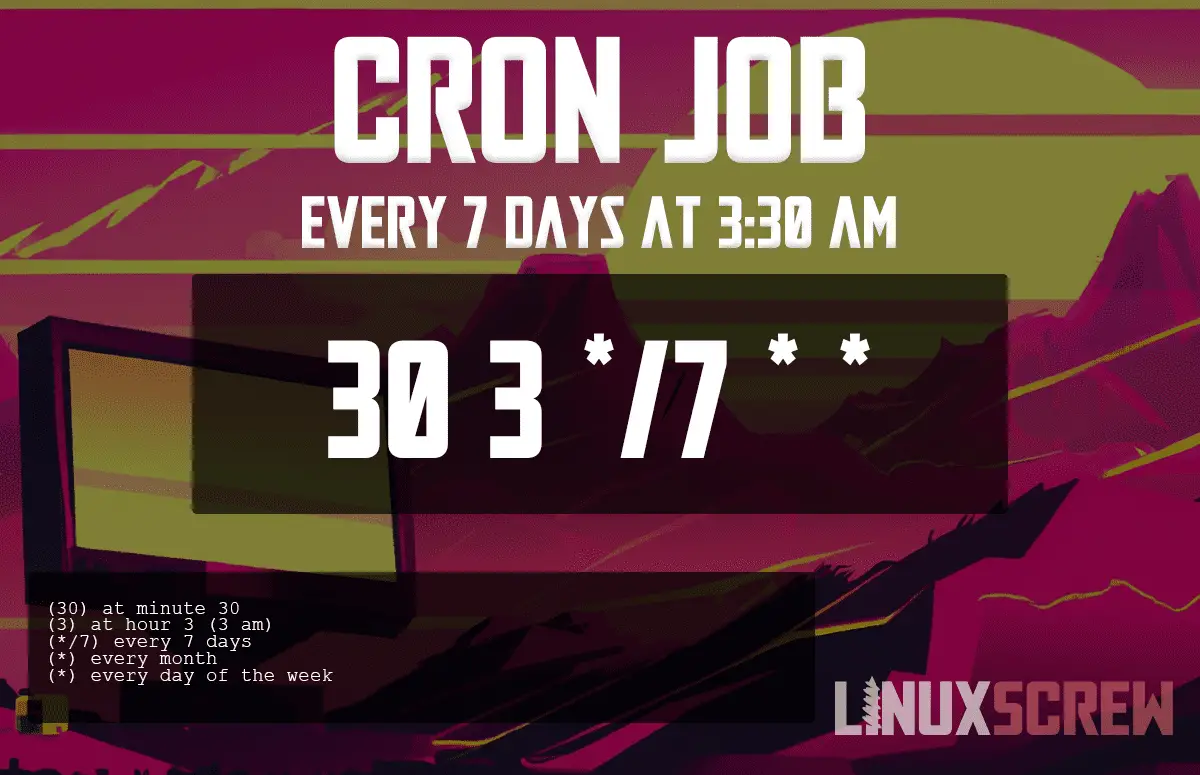This page will help you quickly and easily set up a cron job to run every 7 days at 3:30 am.
The Cron Job/Crontab
To have your task run at this frequency, use the following cron:
30 3 */7 * *
This cron command translates to the following (in Human-Readable format):
“Every 7 days at 3:30 am.”
What is a Cron Job & Crontab?
A cron job is a time-based task that is set to run at a specific interval. For example, a cron job could be set to run every day at midnight in order to update a database or send out nightly emails. Cron jobs are typically used for maintenance tasks that need to be performed regularly.
A crontab is a file that contains a list of commands that are to be executed at specified times. The commands in the crontab are executed by the cron daemon.
Cron Fields
Every cron job uses five fields. Here is an explanation of what each field does in this cron, which runs “every 7 days at 3:30 am“:
FUN FACT: Cron is one of the most versatile tools in a Linux administrator’s toolbox..
Use Cases
You might want to set up a crontab or cron job to run every 7 days at 3:30 am for several reasons, including:
- A daily backup that needs to run every 7 days
- Checking for updates to a software repository that only releases new versions every 7 days
- Running a script to clean up temporary files that accumulates over time
Similar Cron Jobs
You might also want to run a crontab:
- every 8 days
- every 4 days
- every 5 days
- every 2 days
- every 1 day
- every 10 days
- every 8 days at 2:30 am
- every 4 days at 4:00 am
FUN FACT: Cron jobs are named after the Greek god of time, Chronos – so now you know where the name comes from!.
Wrapping Up
In this article, you learned how to set up a cron job that runs every 7 days at 3:30 am. Please share this page with friends and colleagues if you find it useful.
If you have any questions, please don’t hesitate to comment below.
If you are looking for cron jobs that run at certain minutes, hours, days, weekdays, or months, or if you are looking for miscellaneous cron jobs, then check out our relevant sections, or visit our crontab cheat sheet for a list of hundreds of popular cron jobs.

